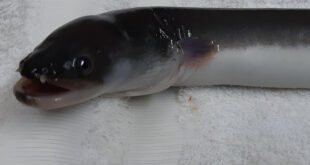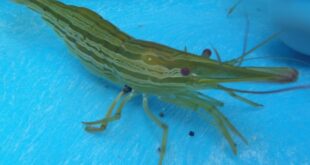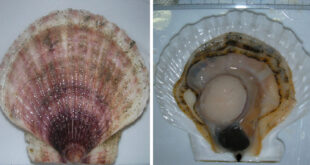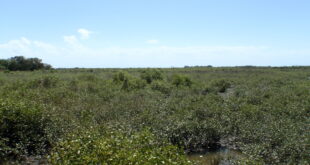By Development Communication Section / F Aya
SEAFDEC/AQD’s Binangonan Freshwater Station conducted a Special Training Course on Freshwater Prawn Hatchery and Grow- out Operations from 11 to 15 May 2015. The course aims to provide the basic knowledge and skills in hatchery and grow-out of giant freshwater prawn to eight participants coming from different fields and professions. The course includes a wide array of topics on: site selection and water quality management, broodstock management, hatchery and nursery operations, natural food production, design and construction of pens, cages and ponds, grow-out in cages and ponds, health and disease management, nutrition and feeding, and aquaculture economics.

Aside from lectures, the trainees had practical and hands-on work for better appreciation of the course. It involves activities on preparation of artificial seawater, incubation and harvesting of brine shrimp as live food for larvae, demonstration on disease and health diagnosis, preparation of artificial feeds and preparation of feasibility study. The participants were very keen on learning every aspect of their activities.
During the closing program, the participants shared their learning and sentiments in completing the course. One participant thought that the training course was a post-graduate course and was very grateful that she and her brother were accepted and were able to attend. She and her brother hope to apply what they have learned from this training in their future endeavors. The rest of the participants were also appreciative that their expectations for the course were satisfied and that they were able to build network with their co-participants.

 SEAFDEC/AQD Southeast Asian Fisheries Development Center | Aquaculture Department
SEAFDEC/AQD Southeast Asian Fisheries Development Center | Aquaculture Department



